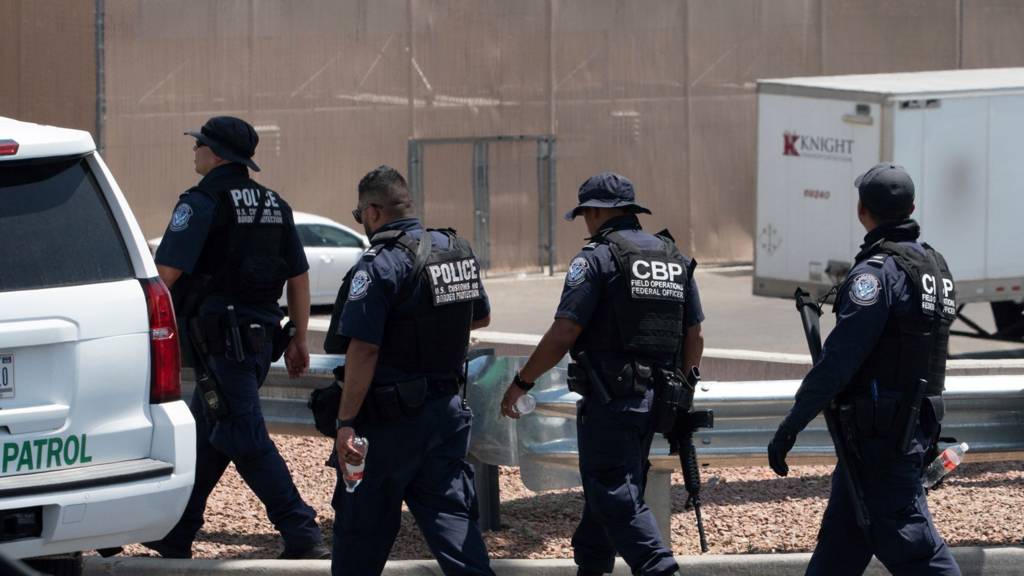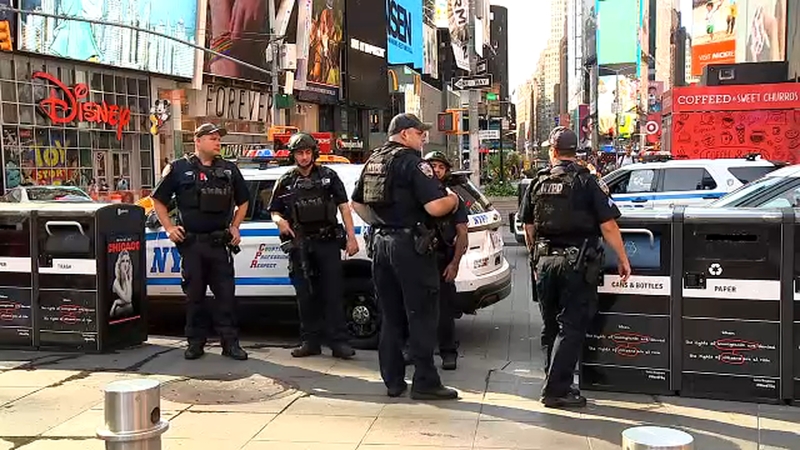 |
| Tactical officers moving in El Paso, Texas bbc.com |
Hello Everyone:
We live in an increasingly dangerous world. It seems that even the most mundane daily tasks--going to the store, to school, your house of worship, and so on--are an exercise in fear. Do you dare to leave your house, knowing that you might be a mass shooting victim or do you stay under the covers with the lights off, door bolted, and drapes drawn. Thanks to the proliferation of apps like Instacart, it is conceivable that you can stay home and have everything you need delivered to your house. Really, is that how you want to live your life? Sure you can install a state of the art security system that allows you to watch whoever comes to your door but at some point you will have to leave the house. Another thing to consider is that a clever hacker can get into your security system. Just thought Yours Truly would throw that out. Regardless of who or what you think the causes of the mass shootings are, one thing we can agree on is that they have destroyed are sense of safety in public spaces. How do we regain are sense of safety?
 |
| Reno family at the Gilroy Garlic Festival before the shooting Gilroy, California ktnv.com |
The Gilroy Garlic Festival, a block party (thetrace.org; Aug. 3, 2019; date accessed Aug. 6, 2019), a Walmart in El Paso, Texas, the Oregon Historic District in Dayton, Ohio (Ibid; Aug. 4, 2019) on a Saturday night. In the past two weeks, each of these places, once the sites of communal life in a nation that exalts the freedom to gather, even or in spite of our fractious times, have become the sites of tragedy. In an instant, these places have become the backdrops of unrelenting horror and fear against which, 110 people were shot and 33 died of their injuries (citylab.com; Aug. 5, 2019; date accessed Aug.. 6, 2019).
In 2019, the greatest danger to American public space is mass shootings, according to Yale sociologist Vida Bajc, who studies public space and security (Ibid). The common thread in each of these shootings is our basic mechanisms of communal life--eating, socializing, shopping, partying--was instantly gave way to blood, death, and panic, requiring the response of tactical units.
In the wake of the four attacks--however difficult to prevent, unpredictable, yet so becoming so commonplace in a country that cannot seem to agree on gun control--law enforcement and public officials have been force to reconsider how people gather. In these case, security takes precedence over other considerations. The traumatic nature of these shootings distort the way we engage with the public sphere. In an interview that originally appeared in thetrace.org (Aug. 3, 2019) and reprinted (in edited form) in citylab.com (Aug. 5, 2019), Vida Bajc spoke to Alex Yablon about the way the shootings can engender security crackdowns on public space and the implications for personal well-being and democracy as a whole.
 |
| El Paso, Texas Walmart ktsm.com |
AY: What does the public get out of public space, and what do they when it is under attack?
VB: Outdoor public spaces in particular crucial to human well-being...It adds to the feeling of well-being and physical health. Public space also allows people to freely interact across class boundaries--.... How do you learn to interact with other people in public? By doing it over and over.
Especially when shooting take place at community events or in the heart of a neighborhood, it's an invasion of this sense of home.
...Shootings also steal from people the sense that they inhabit a place, that it's their space.
 |
| Oregon Historic District Dayton, Ohio planning.org |
AY: And what do mass shootings do to the way authorities charged with keeping public space safe approach that responsibility?
VB: Every such instance of disruption is studied. With the garlic festival, someone cut through a fence. There was a breach of security.... If something similar happens again, there will be a huge outcry. But of course you can't prevent everything....
When you have someone who unleashes anger on the public by shooting whoever happens to come in front of a gun, that speeds up the drive to perfect control over public space.
Increasingly, what we see are built space that are designed or restructured to be surveillance-friendly. They're more directly managed by central, unelected authorities like the police. The question becomes how will surveillance practice--CCTV [...], drones, constant police presence--affect interpersonal interaction in public spaces?
 |
| Increased police presence following a weekend shooting Brooklyn, New York abc7ny.com |
AY: What does this mean for democracy?
VB: Our democratic values are being by our expectation that large events can be disrupted. What kind of society are we becoming without spontaneous social interaction and bonding with strangers? Without democratic access to space? Security doesn't lend itself to these values?
....In other countries, or in immigrants communities, it's common for house parties and other informal gatherings to spill out into the street. There's a very different notion of public order and public space, even though people everywhere argue and get into fights with strangers at big gatherings. But in American, that happens less because you don't know who might be carrying a gun.
| The Second Amendment edu.glogster.edu |
AY: How does American gun culture specifically put these pressures on public life?
VB: It's a serious paradox: The right to bear arms is at its heart about a lack of trust in those same institutions that we demand protect us. The presence of guns necessitates exactly what people who carry gun say they want to be free from: state interference and control.
Because of all these shootings, the state claims the right to step in and multiply itself, expand its control It starts training more police, buying more surveillance cameras, flying more drones over cities.... Guns leads us to invest money in things that don't actually contribute to our collective or individual well-being.
....Attempts to reason are interpreted as an infringement on the freedom to protect oneself. People feel very strongly about this. It's a particularly American situation.
AY: In the past week, we've seen mass shootings strike public spaces in states with strict gun control, like New York and California, and states that encourage concealed carry, likes Texas and Ohio. We saw swift responses by armed police. But nothing seemed to deter these shooters, or prevent them from quickly killing or wounding dozens of people before they were stopped.
VB: Lots of people will have doubts about attending public events or going out at night when we see there's not really any way to be sure you'll safe be from a shooting. There's no way to protect public or private space so that these kinds of shootings will never take place....
I don't see any obvious way out, really--the direction that things going now is more hesitant to participate in public events. We're losing public space who will walk in and shoot. That increases the pressure to privatize or militarize every public setting.
American society is flooded with weapons. We need to have a conversation about the militarization of our society. It's a social bind out of which there isn't an easy solution. It would need to be a very rdical intervention to solve this problem.
No comments:
Post a Comment